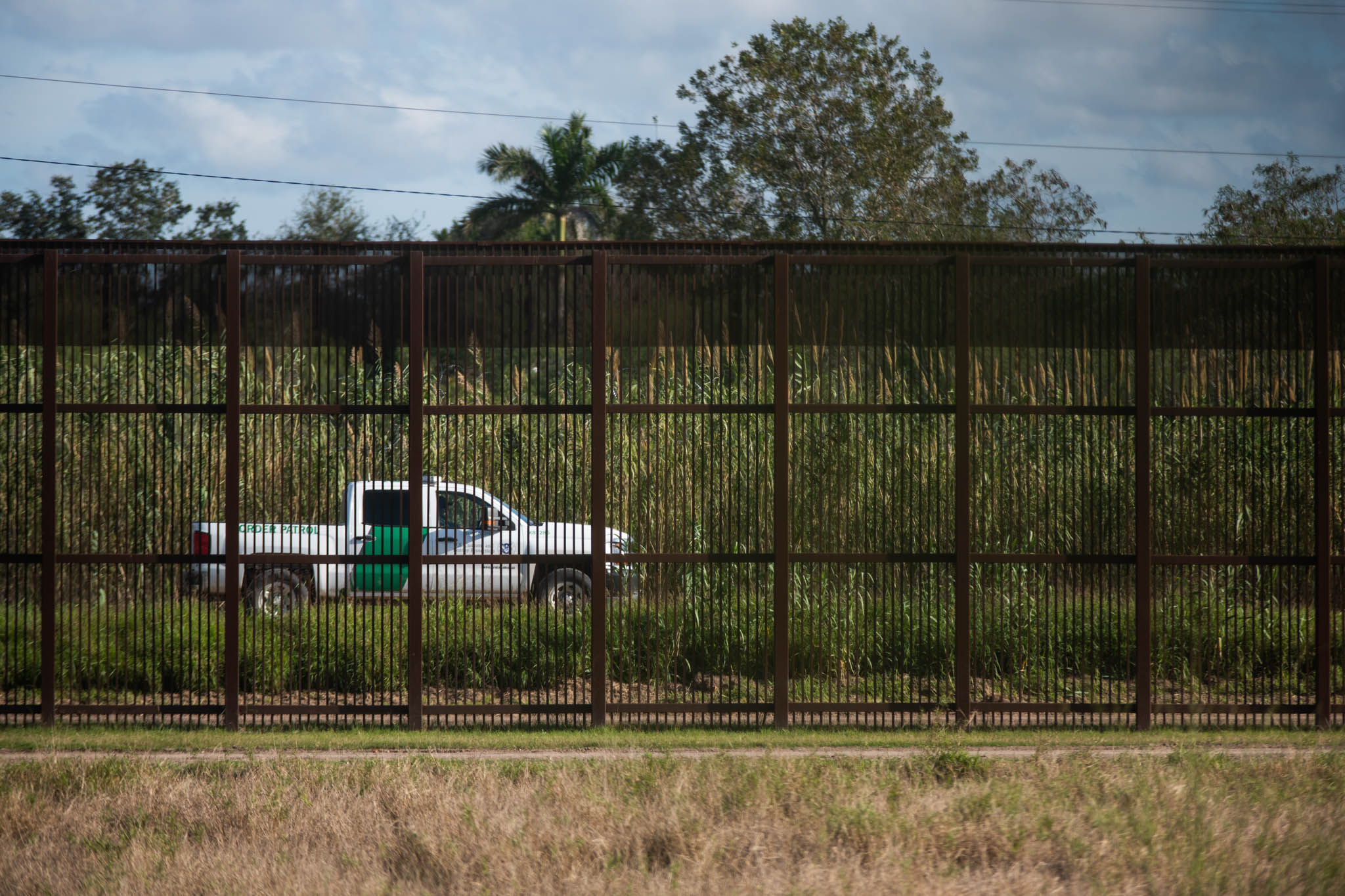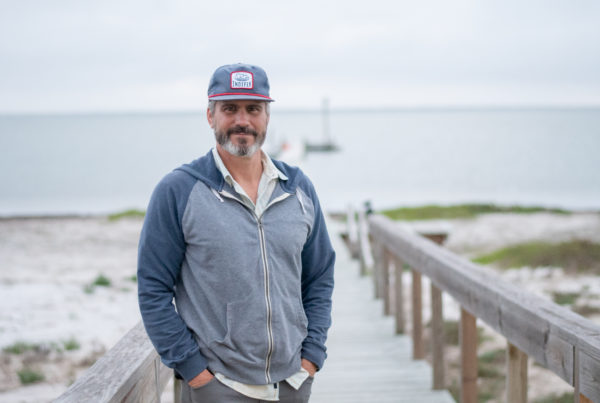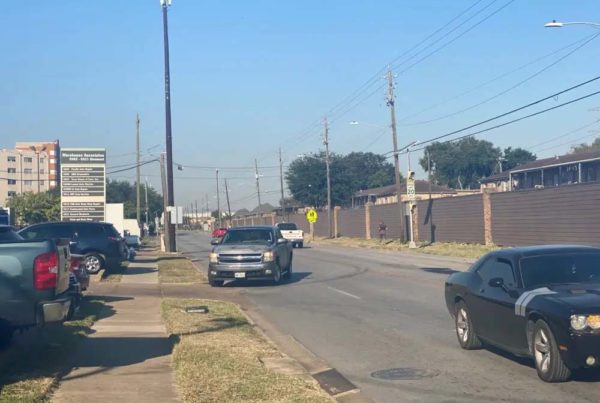We’re 25 days out from midterms and one issue at the forefront of voters’ minds, according to polling by the Texas Politics Project, is immigration and border security.
Against this backdrop, President Joe Biden yesterday announced a plan to accept 24,000 Venezuelans for humanitarian purposes – similar to what the Biden administration did for Ukrainians at the start of Russia’s invasion. The announcement comes as record numbers of illegal border crossings have been reported, and amid ongoing GOP attacks on President Biden’s immigration policies.
Francisco Monaldi, fellow in Latin American Energy Policy at Rice University’s Baker Institute for Public Policy, and Denise Gilman, director of UT Austin’s Immigration Clinic, joined the Standard to talk about the complex issues behind the influx of Venezuelan asylum seekers, and what the policy means for those migrants already in the U.S. Listen to the story above or read the transcript below.
This transcript has been edited lightly for clarity:
There has been a large number of migrants arriving at the southern border from Venezuela. And to understand why, it’s important to understand the underlying factors driving so many Venezuelans to leave the country. Professor Monaldi, what’s the current economic and political situation in Venezuela? I suppose the real question is ‘why now?’ What’s behind the timing?
Francisco Monaldi: Well, you know, there has been an economic collapse in Venezuela starting in 2014. This economy started to decline, and it has collapsed by about 80% of GDP – [an] unprecedented collapse. Most of the emigrants from the country went to Latin America. About 7 million people have left the country out of about 30 million, so it’s a very sizable amount of people. But most went to Latin America. However, after COVID, some of these immigrants that were in Colombia or in Peru started to look up to go to the United States and try to get asylum. So that’s the issue that has brought so many Venezuelans to the southern border of the U.S. And of course, the political situation doesn’t help either. Venezuela has become an authoritarian regime, and that has contributed to the economic decline, but also to the fact that people want to leave the country.
Professor Gilman, some have suggested that past and current U.S. policies have contributed to what we are now seeing with the number of Venezuelans coming into the U.S. or wanting to come to the U.S. What do you make of that?
Denise Gilman: Well, I mean, the United States has a long role in all of Latin America that has been part of some of the root cause of problems in Latin America, [and] human rights situations that lead to an outflow of migrants. There’s no doubt about that. And then, of course, at the southern border, by imposing numerous restrictions on the ability of lawful asylum seekers to enter into the United States and undergo processing here, what you’ve done is you’ve created all kinds of irregular channels that are extremely dangerous – that allow for cartels to thrive and prey on migrants. So the situation at the southern border has become much more chaotic as a result of the various restrictions put in place by the United States.
But it’s my understanding that those restrictions put in place during the pandemic by the Trump administration are not being changed to accommodate the changes that President Biden has announced, that [the] expulsion program will remain in place. People who are already in the United States from Venezuela and awaiting hearings, for example, will not be eligible to apply through this new program. So how much has really changed?
Denise Gilman: Well, exactly. I mean, in fact, what is happening with the new announcements regarding immigration policy for Venezuelans is that the Biden administration is actually expanding on the Title 42 expulsions program begun under Trump, which the whole justification for this program was COVID. We now know that almost every other restriction relating to COVID is being lifted, and yet, at this very juncture, the Biden administration is extending the program to Venezuelans. So it’s deeply, deeply troubling. It’s essentially an effort by the Biden administration to get around both domestic law obligations and international law obligations, which are quite clear that those who approach the border or cross into the United States and make a claim for asylum must be processed in our asylum system. Instead, what we’re doing is we’re creating a special program for some subset of Venezuelans that would allow them this temporary parole status if they’re just now arriving at the border. But for many others, they’re going to be immediately expelled back into Mexico in violation of our asylum law obligations.
Professor Monaldi, I was listening to what Professor Gilman said there. She was sort of focusing on the U.S. role right there at the border. But U.S. sanctions no doubt have had a major impact there in Venezuela as well now.
Francisco Monaldi: Yes. So even though the economic collapse started much earlier than U.S. sanctions, no doubt that U.S. sanctions have contributed because basically the U.S. was the main customer of Venezuelan oil, and since 2019, the U.S. has not bought any oil. So now they are considering sort of relaxing some of these sanctions in sort of a negotiation with Nicolás Maduro to improve the conditions in terms of human rights and democratic institutions, for particularly elections in 2024.
But there’s also the issue of energy prices. I mean, we’ve all been hearing about coming OPEC production cuts. Oil prices expected to rise. Could that be the nudge needed to, perhaps, get the U.S. to resume oil exports or oil imports from Venezuela?
Francisco Monaldi: Yeah, no doubt that that has been a factor since the invasion of Ukraine. Juan Gonzalez from the National Security Council went down to Venezuela, and they started to explore options for Venezuela to export oil to the U.S. But it would be a minimal quantity in the sense that Venezuela’s oil industry is in very bad shape, and it would require a lot of investment before they can actually increase production. Nevertheless, I do foresee some oil from Venezuela coming to the U.S. in the near future with that license to Chevron.
Professor Gilman, I was struck by something that you said earlier. You talked about how the Biden administration appeared to be trying to work around the existing Title 42 program, which has been in place. I’m curious: Here we are, 25 days out from midterms. That’s got to be a factor here. Otherwise, what, the president might have waited a little longer? What do you make of the timing?
Denise Gilman: Well, and to be clear, what the Biden administration is doing is actually expanding on the Title 42 program, which was this purported public health rule that said that during the crisis period of the pandemic, certain asylum seekers would be turned away at the border. There were always huge questions about the lawfulness of this program. And in fact, the Biden administration has said that it wants to end the program, and it is only still in place because the state of Texas and others have sued to keep it in place to allow continued expulsions. But now, despite the Biden administration’s efforts to end the program, it is extending it to Venezuelans. Venezuelans typically have not been subjected to the automatic expulsions under Title 42 because the administration recognizes that they are fleeing a human rights and economic crisis and that many have valid claims. I have pursued asylum claims for Venezuelans successfully. So I just want to make that clear.
Now, does this have to do with the elections? Absolutely. There’s no doubt about it that the Biden administration is very concerned about an image of large numbers of asylum seekers arriving at the southern border without some response. And so it has used this Title 42 program ,with all of its problems and with its clear inapplicability at this point in the pandemic, and applied it to Venezuelans, which is very troubling, because once again, it shows a willingness on the part of this administration and in other administrations to just forgo all of our legal obligations to asylum seekers in the moment when you see an actual genuine refugee flow. I mean, UNHCR has indicated this is one of the world’s largest genuine refugee flows at this moment and it can be treated as such and should be treated as such.













